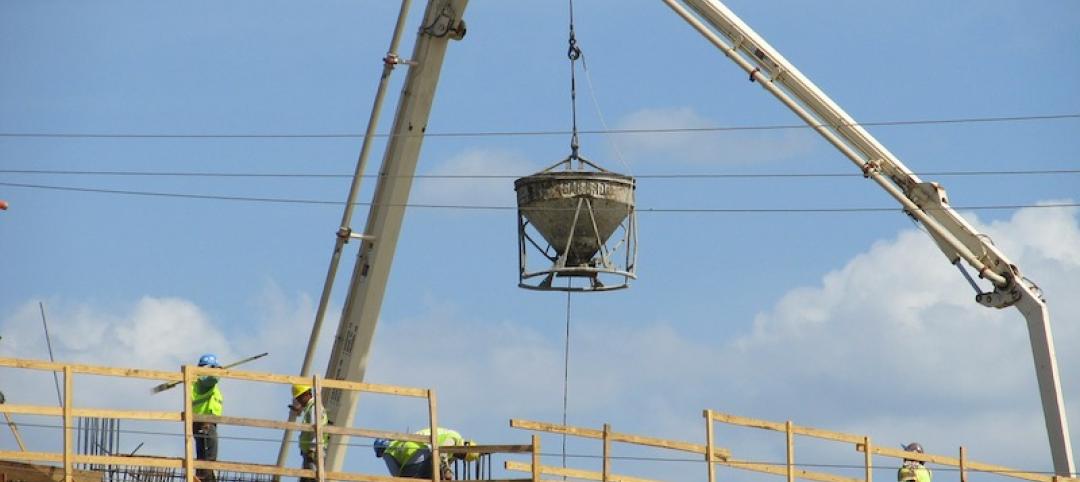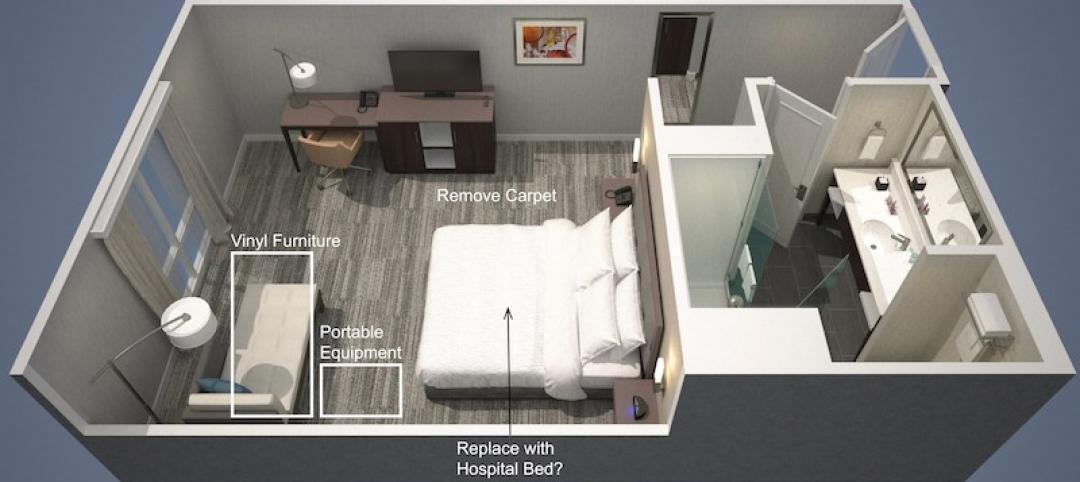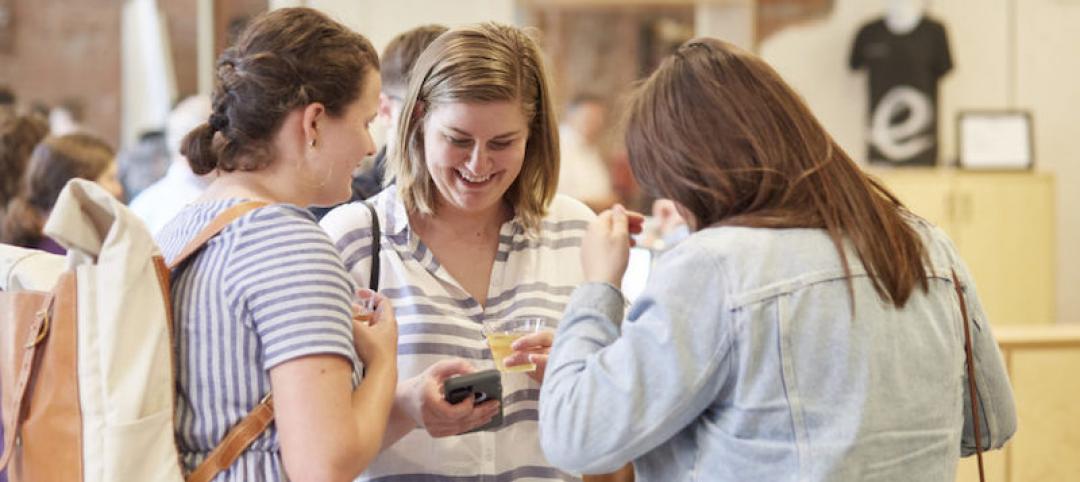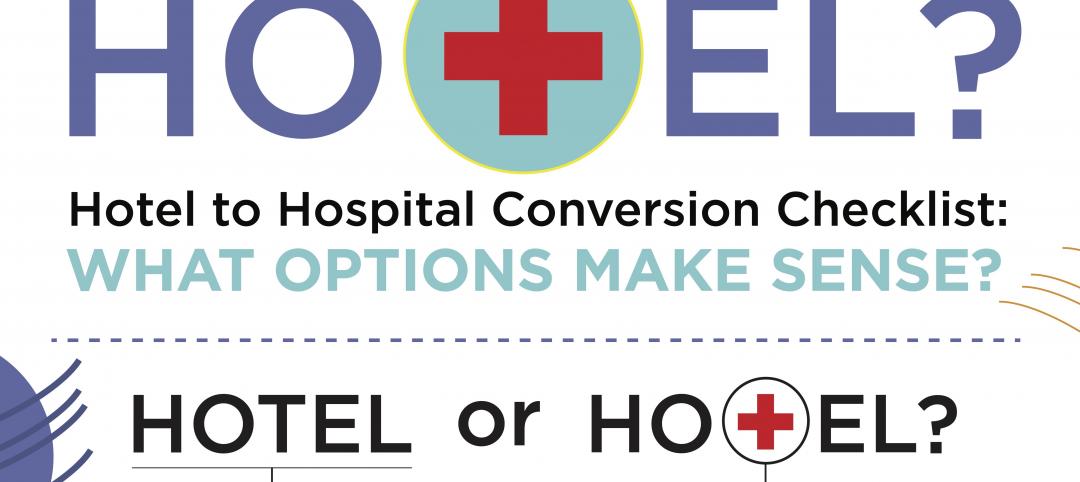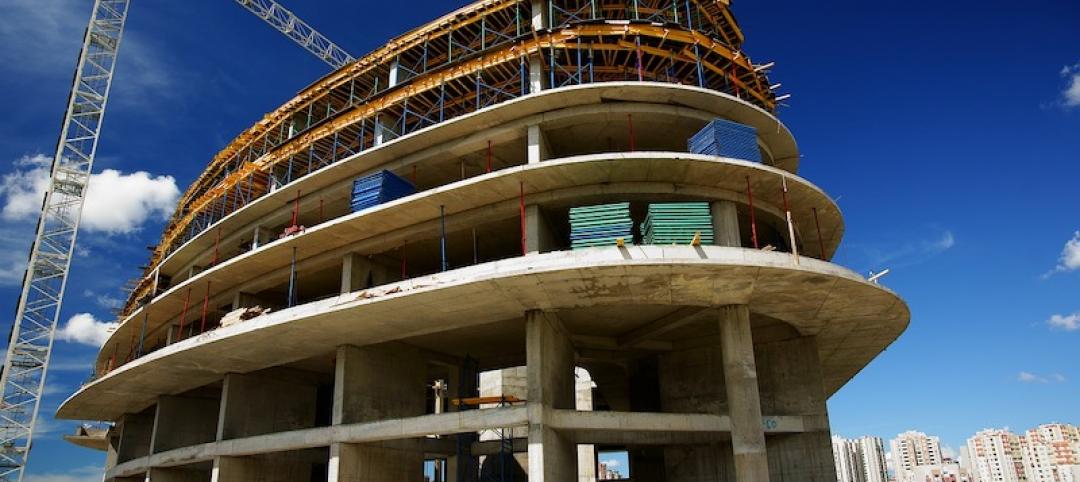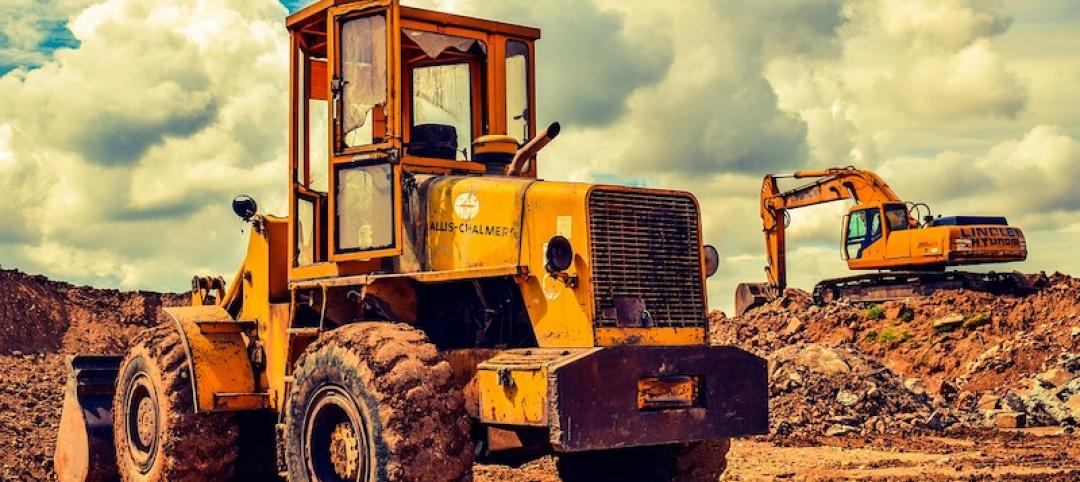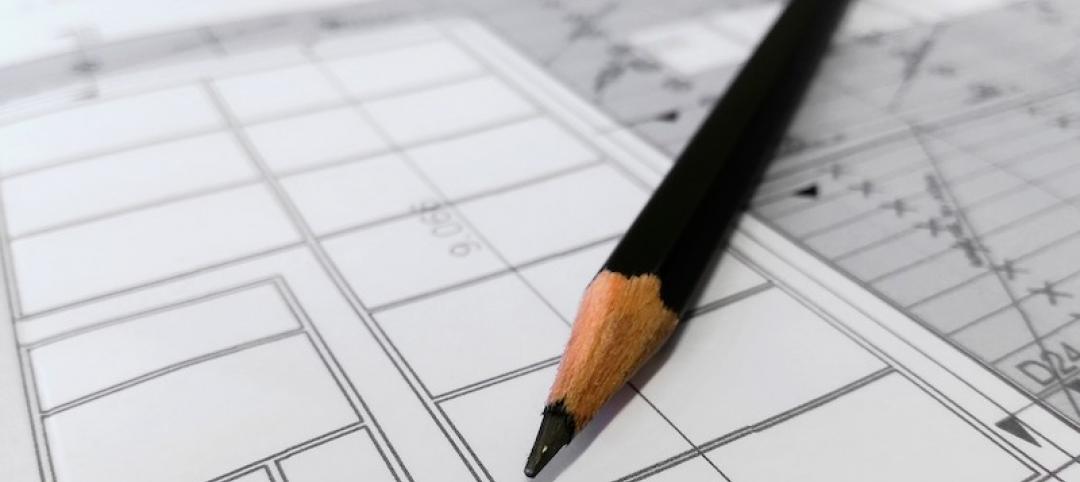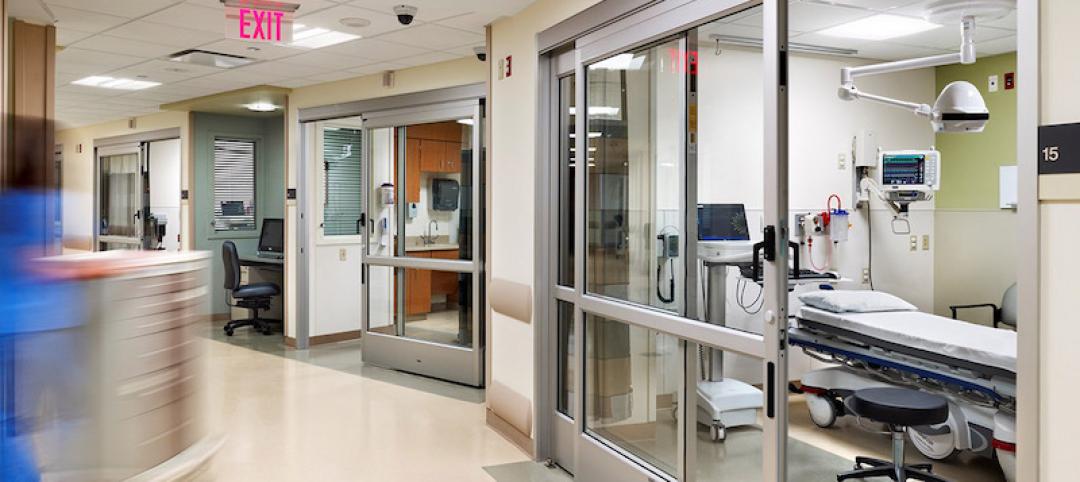Richard Rubin sees the current spate of empty hotels, motels, retail, and office spaces created by the pandemic as opportunities for adaptive reuse to affordable housing, which is in perennially short supply in many markets in the U.S. and around the world.
Rubin is CEO of Repvblik, a Los Angeles-based company that specializes in such conversions. He and his partner Chris Potterpin of PK Housing Michigan—which is part of a multistate property management company that includes a development and construction division—have several hospitality-to-housing projects in the works in the Midwest, including the conversation of a hotel in Stillwater, Okla., to 141 units of student housing located a mile from Oklahoma State University that should be ready for occupancy this fall.
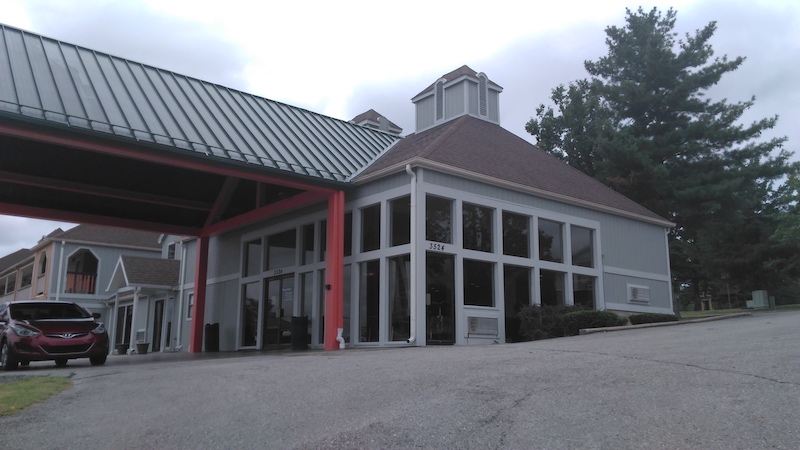 Plato's Cave is an adaptive reuse of a Days Inn in Branson, Mo. When completed it will have 341 rentable apartments, each of which with a kitchen that was installed by the developer. Images: Repvblik
Plato's Cave is an adaptive reuse of a Days Inn in Branson, Mo. When completed it will have 341 rentable apartments, each of which with a kitchen that was installed by the developer. Images: Repvblik
Repvblik’s most ambitious project to date is the conversion of a 420-key Days Inn within six buildings on 14.5 acres in Branson, Mo., which had been vacant for at least eight years, to Plato’s Cave, which when completed next year will offer 341 rentable apartments. The first phase, with nearly 170 units, opened recently and was renting for between $495 and $695 per month. “Branson is leasing very well,” says Rubin in an interview with BD+C last week.
The hotel rooms were 285 sf. Some of the hotel units were combined into one apartment. Repvblik added kitchens, installed sprinklers in four of the buildings, and built a clubhouse, fitness center, and exterior fencing. Rubin estimates that this project, including the amenities, cost between $15,000 and $20,000 per unit converted, with most of the work being done by the company’s internal construction crews. “It’s a heavy lift, but not as heavy as a greenfield project,” he says.
His financing for the projects in Missouri and Oklahoma is a combination of syndicated equity, construction loans, and permanent debt financing.
TRANSFERRING IDEAS FROM HIS HOMELAND
Rubin, a South African, came to the U.S. in 2015 for a student housing conference in Austin, Texas, and decided to stay. (He was particularly attracted to living in southern California.) In the 10 years before his arrival, Rubin was managing director for AENGUS Property Holdings, a “turnkey” developer focused on urban renewal.
He recalls that in the early 2000s, Johannesburg decentralized its business district, which led to a series of company relocations and vacant high rises. Rubin approached REITs that owned some of those high rises about converting their spaces into affordable rental units, which he started doing in 2004. He says that over the following decade, AENGUS converted “several million square feet” of commercial office space into workforce housing.
After he emigrated to the U.S., it took him a few years to get the lay of the land. He and Potterpin formed Repvblik in 2016-17, and the company initially looked for adaptive reuse opportunities in Detroit. The company is now homed in on the Midwest, where Rubin claims there are “hundreds” of hotels and motels that are either vacant because of the COVID-19 virus, semi occupied, or have been closed for several years.
Aside from the Stillwater and Branson projects, Repvblik has two hotel-to-workforce housing conversions in the works in Michigan, and one in Ohio. He declined to specify which markets in each state.
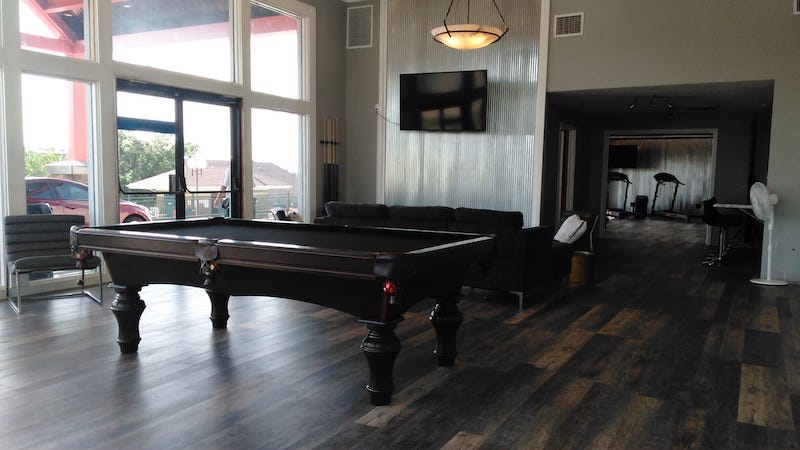 A common area in Plato's Cave includes a billiards table and fitness center. Image: Repvblik
A common area in Plato's Cave includes a billiards table and fitness center. Image: Repvblik
COMPARED TO OTHER CRES, AFFORDABLE HOUSING IS LOOKING BETTER
Putting on his sales cap, Rubin is convinced that now is the time for investors to jump into affordable housing. The conventional places where they might have parked their money previously, like retail malls or hospitality, have been decimated by the pandemic, and there’s no telling what “recovery” will look like for either.
On the other hand, Rubin states, there’s are always opportunities in affordable housing because “there’s so little of it.” Rubin calls this the “missing middle.” And with unemployment at its highest levels in generations, the need to provide individuals and families with places to live they can afford has rarely been more pressing.
Related Stories
Coronavirus | Apr 1, 2020
February rise in construction outlays contrasts with pandemic-driven collapse in March as owners, government orders shut down projects
Survey finds contractors face shortages of materials and workers, delivery delays and cancellations.
Coronavirus | Apr 1, 2020
Green cleaning and the coronavirus
If your cleaning teams use bleach to disinfect buildings from Coronavirus, will you put your LEED certification at risk?
Coronavirus | Mar 31, 2020
As cities scramble for hospital beds to treat COVID-19 patients, Leo A Daly offers a hotel-to-hospital solution
The firm has devised three conversion models, for different levels of healthcare required.
Coronavirus | Mar 30, 2020
Your turn: Has COVID-19 spelled the death knell for open-plan offices?
COVID-19 has designers worrying if open-plan offices are safe for workers.
Coronavirus | Mar 30, 2020
Learning from covid-19: Campuses are poised to help students be happier
Overcoming isolation isn’t just about the technological face to face, it is about finding meaningful connection and “togetherness”.
Coronavirus | Mar 30, 2020
COVID-19 innovation: Setting parameters for hotel-to-hospital conversions
tvsdesign breaks down different room types and how they might help free up hospital beds for coronavirus patients.
Coronavirus | Mar 30, 2020
New Department of Homeland Security guidance clarifies construction's role in supporting essential critical infrastructure
Construction officials say new federal guidance should signal to state and local officials the need to allow construction activity to continue, or resume, during coronavirus-related work stoppages.
Coronavirus | Mar 27, 2020
Sharp jump in owners cancelling or delaying construction projects across the country, new survey finds
After 42 states added jobs in February, coronavirus is taking a swift and severe toll on the industry, prompting association officials to call for additional measures to help workers and firms recover.
Coronavirus | Mar 27, 2020
Covid-19 stalls demand for design services
Two thirds of architecture firms report slowing or stoppage of projects due to COVID-19.
Coronavirus | Mar 26, 2020
It’s not if, but when: Designing healthcare spaces that support pandemic response
What can we learn from Singapore’s response to COVID-19? How does it impact the next generation of hospitals?


